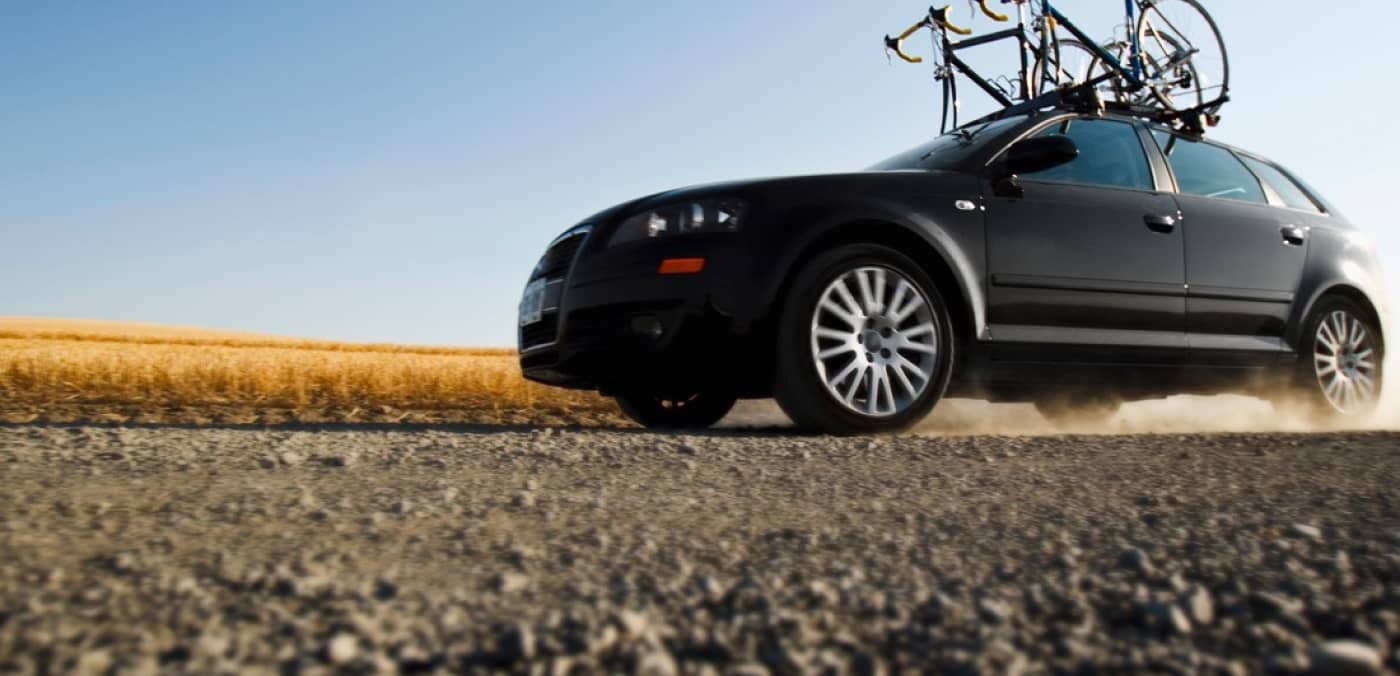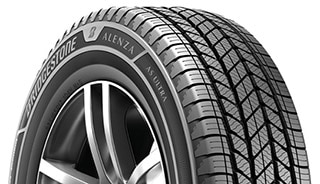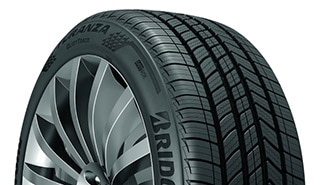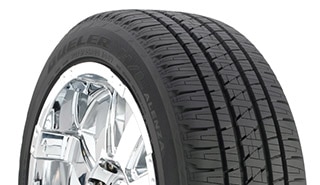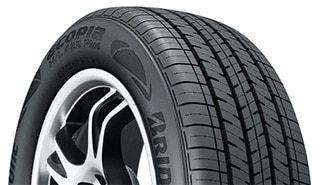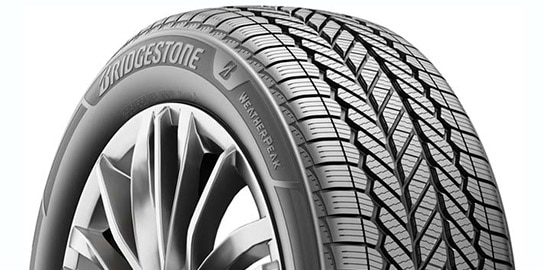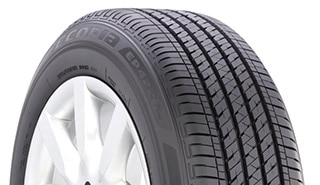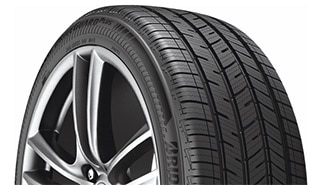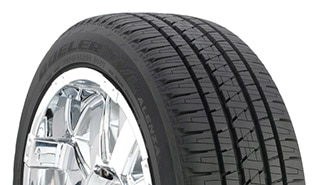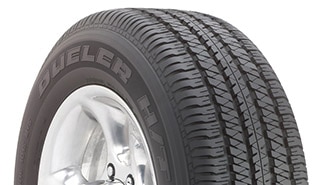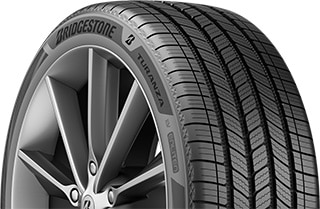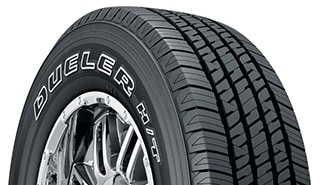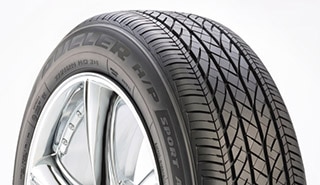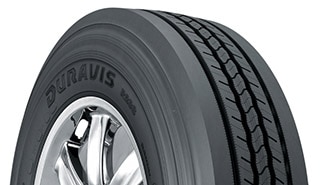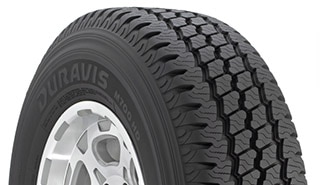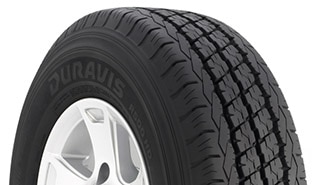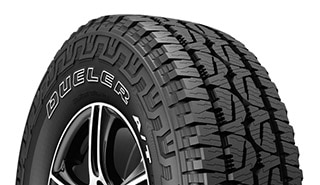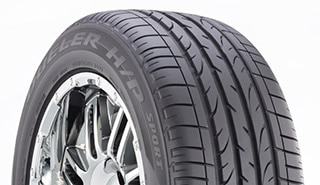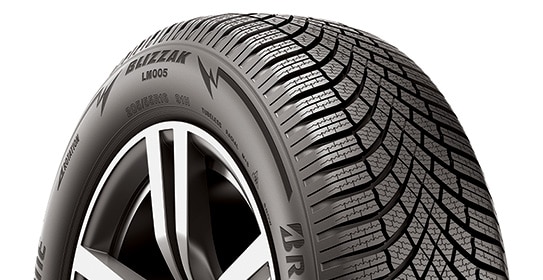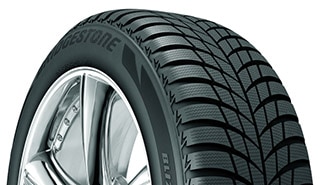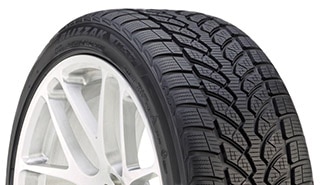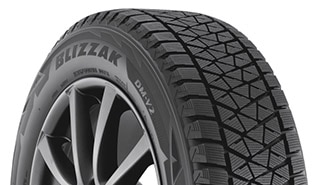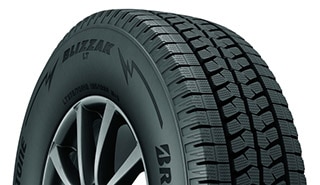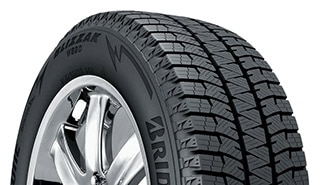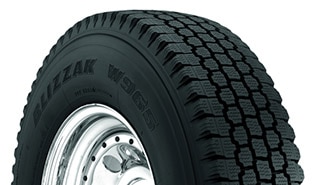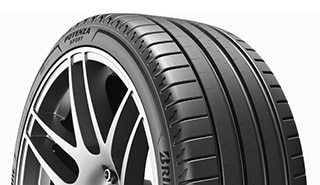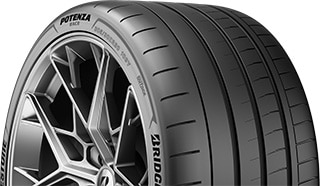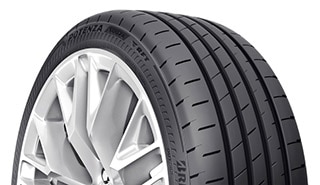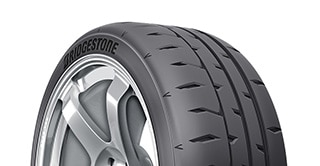MORE MILES FOR YOUR MONEY
From fill-ups to tune-ups to wear-and-tear parts like tires and brakes, if it seems like a good chunk of your paycheck goes directly into your car, you're not alone. The U.S. Department of Commerce's Bureau of Economic Analysis estimates that transportation costs equal about 12.9% of the typical household's income. So, how can you stretch your money when it comes to your car? Here are five tips to help get the most life out of your tires.
1. PUMP IT UP
Tire pressure is a big deal when it comes to tire longevity. Tires need proper inflation pressure to operate effectively and perform as intended. Both overinflated and underinflated tires can cause tires to wear faster, as well as adversely affect vehicle handling and fuel economy. Use a tire gauge to be sure tires are inflated properly. Check your tire pressure every month and before long trips or when carrying extra load. The vehicle manufacturer recommendations for tire pressure can be found on a label affixed to the driver's door or door jamb, or in the vehicle owner's manual. Remember that tire pressure should be checked when the tires are "cold," which means when your car hasn't been driven for three hours or for less than a mile at moderate speed.
2. MAINTAIN PROPER ALIGNMENT
If your car's wheels are out of alignment, your tires will wear unevenly, which can lead to early replacement. Also, a car out of alignment could signal other mechanical problems that may affect tire performance. For the best results, choose a shop that uses accurate computer-assisted machines, and ask for a printout of the adjustment angles to keep with your service records.
3. ROTATE REGULARLY
Your car's wheels have different forces exerted on them depending on their position on the car, which can lead to uneven tread wear. Rotating your tires regularly (as recommended by the vehicle manufacturer, or every 5,000 miles) promotes even tread wear and helps the tire perform as designed.
4. CHECK YOUR BALANCE
Tires and wheels that are out of balance don't just cause annoying vibration. Uneven tread wear may also result, further reducing your ride comfort and leading to earlier replacement. A shop with an electronic spin balancer can help smooth things out.
5. ROLL WITH LESS RESISTANCE
Rolling resistance is the amount of energy needed to keep your tires moving at a straight and steady pace. It impacts your car's fuel efficiency, and saving on gas is definitely a good way to keep money in your pocket. Choosing tires like the Bridgestone Ecopia line of low-rolling resistance tires can reduce your gas costs up to $450 over the life of the tires*; and that's not pocket change.
*Based on 36% improvement in rolling resistance comparing the Ecopia EP422 (Size: P195/55R16) to the Bridgestone Turanza EL400 (Size: P195/55R16). Actual savings may vary based on proper tire maintenance, vehicle, 65,000 mile tire life, driving style and road conditions.



